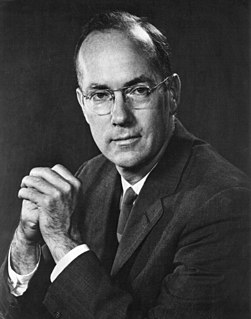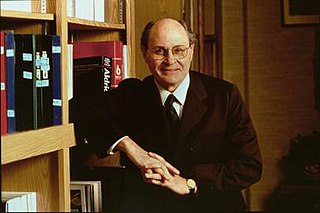A Quote by Carlo Rubbia
In big science, the role of the individual scientist must be carefully preserved. So is the one of original ideas and of contributions.
Related Quotes
The books of the great scientists are gathering dust on the shelves of learned libraries. And rightly so. The scientist addresses an infinitesimal audience of fellow composers. His message is not devoid of universality but its universality is disembodied and anonymous. While the artist's communication is linked forever with its original form, that of the scientist is modified, amplified, fused with the ideas and results of others and melts into the stream of knowledge and ideas which forms our culture. The scientist has in common with the artist only this: that he can find no better retreat from the world than his work and also no stronger link with the world than his work.
There are kind of two kinds of awards you can get as a scientist. One is Nobel-like in character: it's for one big thing, for a big revolutionary discovery. And it's wonderfully well known, and of course every scientist would love to get a Nobel prize. And there's a few other similar awards. They're for individual blockbuster discoveries.
To reverse the trend and reduce the role of government in our lives, and thus alleviate the government deficit and inflation pressures, is a giant educational task. The social and economic ideas that gave birth to the transfer system must be discredited and replaced with old values of individual independence and self-reliance. The social philosophy of individual freedom and unhampered private property must again be our guiding light.
No scientist or student of science, need ever read an original work of the past. As a general rule, he does not think of doing so. Rutherford was one of the greatest experimental physicists, but no nuclear scientist today would study his researches of fifty years ago. Their substance has all been infused into the common agreement, the textbooks, the contemporary papers, the living present.
As ideas are preserved and communicated by means of words, it necessarily follows that we cannot improve the language of any science, without at the same time improving the science itself; neither can we, on the other hand, improve a science without improving the language or nomenclature which belongs to it.
It is clear that everybody interested in science must be interested in world 3 objects. A physical scientist, to start with, may be interested mainly in world 1 objects--say crystals and X-rays. But very soon he must realize how much depends on our interpretation of the facts, that is, on our theories, and so on world 3 objects. Similarly, a historian of science, or a philosopher interested in science must be largely a student of world 3 objects.


































